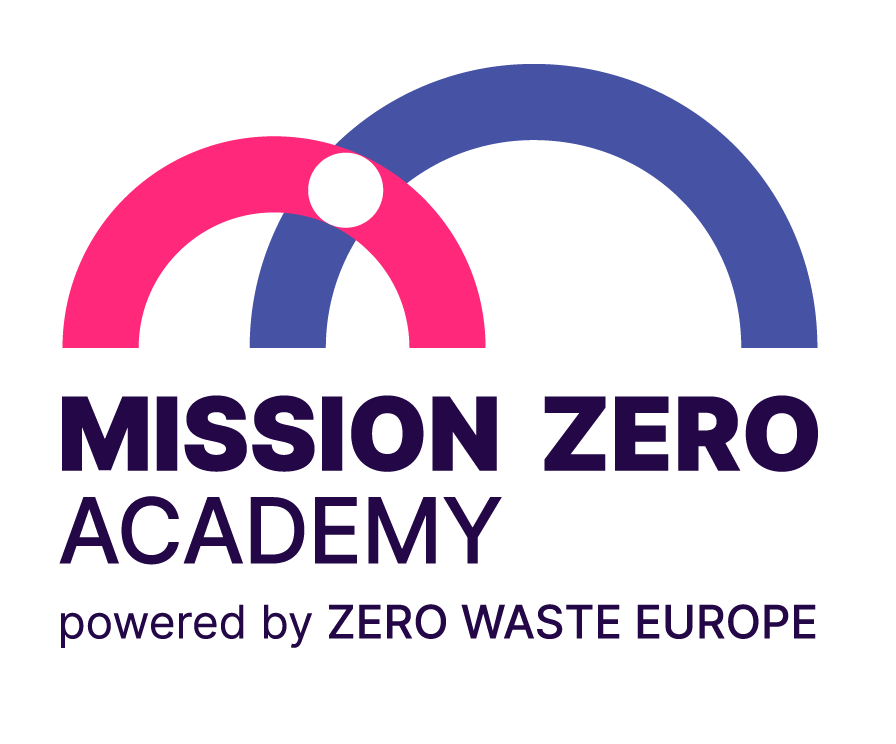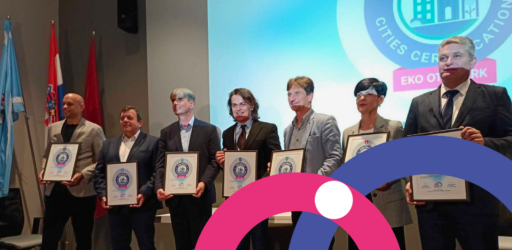Khmelnytskyi, Ukraine, 20 December, 2024 – The city of Khmelnytskyi has taken its first step towards a zero waste future by joining the Zero Waste Cities Certification, organised by Mission Zero Academy (MiZA).
In partnership with the communal enterprise Spetskomuntrans, Khmelnytskyi manages waste management centres where residents can recycle or repurpose over ten types of waste, including furniture, construction waste, polyethylene, clothes, and more. Key to these efforts are the Ecobus, a mobile unit for collecting hazardous waste which collects items like batteries and lightbulbs, and the Gufi-Center, Ukraine’s only waste management education facility.




Oleksandr Symchyshyn, Mayor of Khmelnytskyi City Council, states:
“By joining the Zero Waste Cities Certification, Khmelnytskyi has an opportunity to improve its waste management processes, where the key is to prevent waste generation. All stakeholders – business, educational institutions, and the public – should be involved in this process, because only by working together we can create a zero waste community.”
In 2016, Khmelnytskyi began addressing its growing waste management challenges. Since then, the city has implemented a series of innovative changes. Led by the municipal office, Smart Environment Khmelnytskyi, has driven innovative solutions since 2019 to improve its municipal solid waste infrastructure, created in cooperation with the European Bank for Reconstruction and Development (EBRD). As such, the city has initiated landfill rehabilitation and introduced a centralised system for separating household waste.
Svitlana Karytun, Zero Waste Cities Programme in Ukraine Coordinator at Zero Waste Alliance Ukraine, states:
“The Zero Waste Cities Certification program is a good opportunity for Ukrainian communities to transform their waste management system, taking into account the best practices that have been successfully implemented in EU countries. Khmelnytskyi has been actively working on implementing new solutions in waste management in recent years, and joining the program is a challenge that will allow them to movetowards a zero waste life in the community.”
On July 9, 2023, Ukraine’s Waste Management Law came into force. The main aim of the reform is to rebuild the waste management system according to European Union principles, such as preventing waste generation and implementing a “polluter-pays” principle.
This announcement comes after the Zero Waste Cities in Ukraine project launched in Ukraine in May 2024 with financial support from the EU’s LIFE Programme. The project aims to help local governments implement new waste management requirements. Four Ukrainian municipalities — Lutsk, Kherson, Pokrovsk (Donetsk region), and Liubotyn (Kharkiv region) — will work together with partners for four years to build a sustainable waste management system.
ENDS
Zero Waste Europe
Sean Flynn
sean@zerowasteeurope.eu or news@zerowasteeurope.eu
0032 471 96 55 93
Notes to the editor
- For more information about the Zero Waste Cities in Ukraine project, click here: https://zerowasteeurope.eu/press-release/zero-waste-europe-participates-in-the-zero-waste-cities-in-ukraine-project-with-the-support-of-the-life-programme/
- The Zero Waste Certification is made up of 5 steps: (i) the expression of interest in being Zero Waste by the municipality, (ii) the commitment to be Zero Waste, (iii) the implementation of this system, (iv) its certification and (v) the performance of annual improvements. The overcoming of each of these steps is given with the support and advice of expert entities in the fields of waste and resource management. The evaluation for certification is developed around a scoring system, which includes mandatory criteria and optional scoring criteria.
- Scoring criteria are scored based on the ambition and impact of each implemented policy. The sum of the points defines the level of certification of the municipality and its subsequent number of ‘stars’.
- Subsequent to Certification, municipalities must monitor their activity and make annual improvements to enhance the results achieved. Every 3 years they are subject to new audits.





